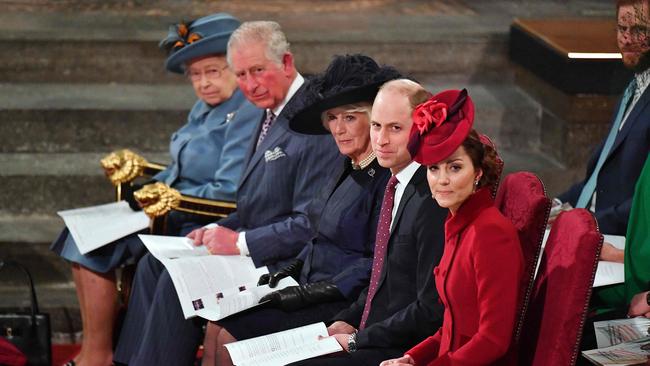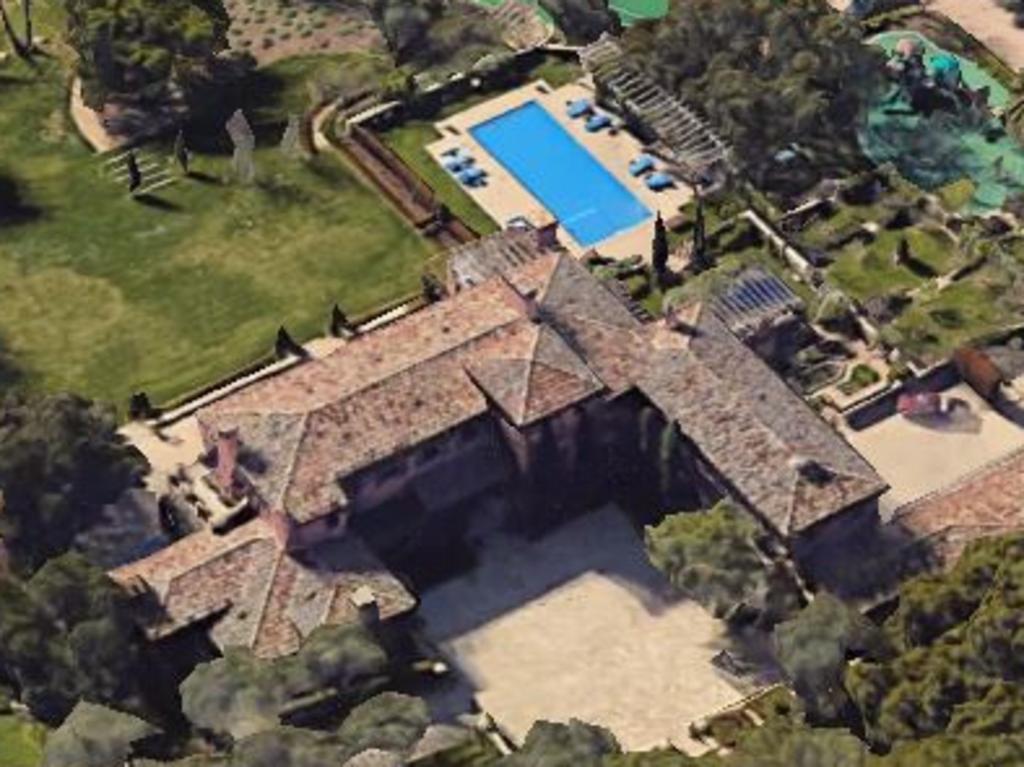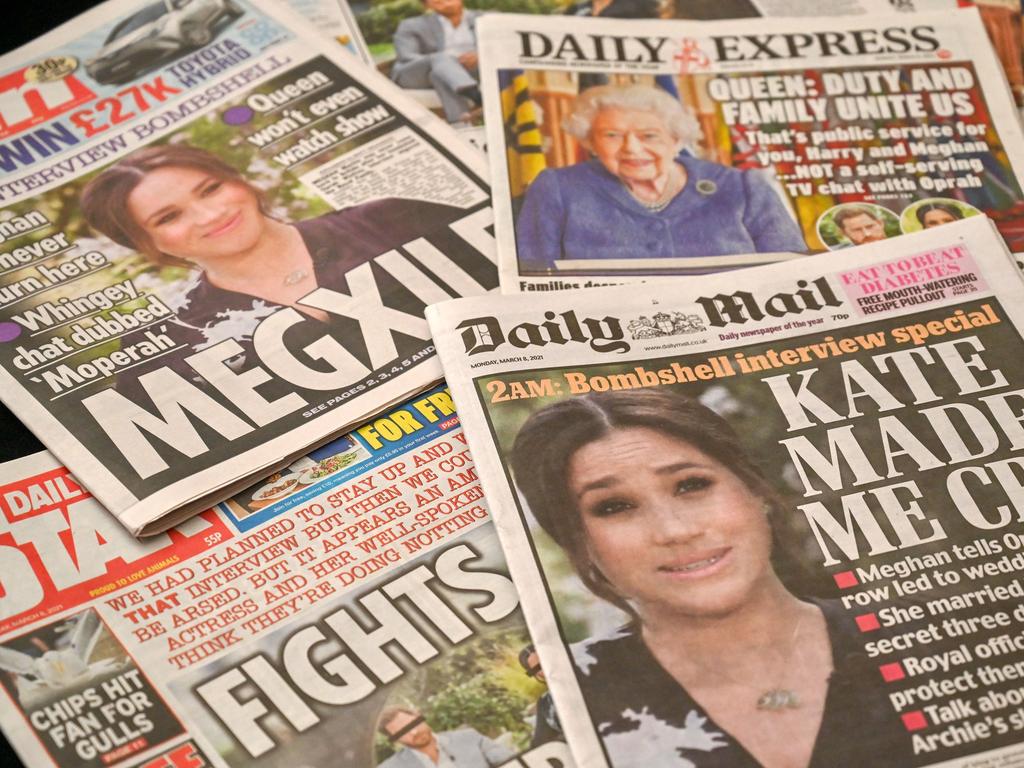Charles III needs the king of all rebrands
To survive, The Firm needs a garage sale, a swingeing review of its property portfolio and a redundancy scheme that must impose almost as much pain as that interview from California.

Prince Harry made an important point when he said, in his interview with Oprah Winfrey last week, that he, Prince William and their father felt trapped. I was once crass enough, in a conversation almost 30 years ago, to suggest to the heir to the throne that there comes to all of us, amid troubles, a time to stop feeling sorry for ourselves and get on with life. Prince Charles banged his fist angrily on the table and said: “Nobody but me can possibly understand how bloody it is to be Prince of Wales!”
Which is true. Let us leave the self-exiled Harry out of this for a moment. We are, perhaps, too ready to take for granted the willingness of Charles and William to perform the roles ordained for them by birth and the British constitution: of serving in turn as our head of state. They are denied the option of a career change, such as is open to every butcher, baker and candlestick-maker.
What sane person would wish to live at Buckingham Palace or Windsor Castle? To make a career of presenting ribbons or cutting them? We sometimes discuss the notion that the British people might tire of the monarchy. We should also consider the possibility, made more real by recent Californian shenanigans, that its principal ornaments might tire of us - or lose the plot.
Let us crystal-ball-gaze a bit. The Queen is dead; long live the King. It is no discourtesy to one of our finest monarchs to suggest that a decade from now Elizabeth Regina will probably be gone, and presumably replaced by her octogenarian son.
Seven years ago the cheeky and witty Mike Bartlett wrote a play entitled King Charles III, presented at the Almeida Theatre. He imagined a constitutional crisis, brought about by the monarch’s principled refusal to sign a draconian government bill restricting freedom of the press. When the prime minister insists, the monarch dissolves parliament. Prince Harry, in a relationship with a republican commoner named Jess, demands to retire from royal life (did the playwright know something we then did not?).

Prince William’s wife, Kate, devises a machiavellian scheme to save the throne by deposing Charles and replacing him with her husband. William announces this plan at a press conference, without his father’s knowledge or consent. Charles is forced to abdicate, and a disgusted Jess disappears into the sunset. The press-muzzling bill goes ahead.
It was amusing tosh, of course, but a few thoughts stuck. Tim Pigott-Smith put on a great performance as the well-meaning, but muddled and ineffectual, King. It seemed unthinkable that the Duchess of Cambridge would, in real life, become a conspirator. It was hard to imagine Charles, or his son, impaling himself upon a constitutional crisis, least of all about press censorship.
The play, however, caught the imagination of critics and theatregoers because it was already obvious, as now it is even more so, that the monarchy faced generational change, and thus new challenges. And its principal players are, like us all, imperfect human beings.
I am an optimist about the institution. Few even among its critics seek its abolition, when we think about what might replace it. Who would you rather have as head of state: King Charles III? Or Tony Blair, Richard Branson, Boris Johnson, Piers Morgan or any other such motley candidate as might propose himself for our president?
Even ardent monarchists acknowledge, however, that there must be change, to sustain popular consent. It has been plain for years that this would not come in the Queen’s reign. In old age she has been unwilling to confront disagreeable realities. Her successor must do so.
The coronation will be a critical occasion, because it will set the tone for the new reign. Almost certainly, all faiths will be strongly represented in Westminster Abbey, and the ceremony will not be explicitly a Church of England affair. It is a more delicate issue whether the new King should sever the Crown’s link with the established church, as some favour. Arguably, in our hypocritical way, we British prefer our monarch to be attached to some religion, rather than to profess all or none.
“The Firm” needs to accelerate the slimming process that has already begun. There is public demand for a supply of princes and princesses to open factories, visit warships and add stardust to civic occasions. But there is no case for privileges, housing or security to be extended to minor royals. It is welcome that Beatrice was not granted a royal wedding.
The family occupy too many palaces and mansions. Sandringham and Balmoral are their own properties, but the division between family and state possessions is ill defined. The royal family’s private fortune was founded upon Queen Victoria’s cupidity during her decades as “the Widow of Windsor”, when she refused to perform public duties but banked a regal income from the public purse. Although the Queen now pays tax, governments still deal indulgently with the family’s questionable claims on some of their assets. For starters, the Duchy of Cornwall should pass from the Prince of Wales’s control to that of the state.
The new monarchy should not be perceived as an extension of the aristocracy. The 2030 family needs to be seen to have some friends, at least, who are not titled, rich or famous. We all welcomed Harry’s marriage at first because it seemed to offer a social breakthrough. One of the Duchess of Cambridge’s many virtues is that she is indisputably middle class.
The younger royals should embrace pastimes less unsympathetic than playing polo and killing things. Many of the Queen’s subjects find field sports unpleasant, and it is foolish for the family gratuitously to antagonise them. There may be security issues about sending royal children to local comprehensives. But there is a lot to be said for Prince William’s children attending humdrum schools, rather than the most conspicuously elitist in the land.
Key to the monarchy’s future is discipline, which has been at the heart of the Queen’s triumph. Her iron self-control and sense of duty never falter. Her husband has often been accused of indiscretions, but never about anything that mattered. Prince Philip has been a model consort. The contrasting wilfulness of others has done much harm. Prince Andrew’s disgrace has been rooted in his belief in a right to a lifestyle that his income could not support, and that his judgment should have rejected. Yet when he careered off course, no one cracked the whip as they should have done.
The Prince of Wales means well, but sometimes seems to lack steering or brakes. When he bullied the Labour government into providing NHS funding for alternative medicine, against authoritative medical advice, he broke every rule for a constitutional monarchy. Some of his utterances about the meaning of life and the universe have been ill advised, because they lend currency to the view that he is - how shall we say? - eccentric.
Charles is the most conspicuous victim of the Oprah interview, because Harry cast him as an uncaring father. There is a danger that this charge will prompt resurrection of harsh things said in the past, and in the TV series The Crown, about his alleged treatment of Diana. Most of our monarchs have had tragically awful relations with their children. It is easy to identify Charles’s faults, egotism and extravagance among them. But he is sober, serious, conscientious about his duties and happily married to the love of his life.
His lifelong grievance is that he yearns to do things, some of them admirable, especially on climate change, while his duty as heir to the throne and thereafter as monarch requires him to be decorative. He strives to be a good person, but lacks his mother’s prudence and caution. On the throne in 2030, he will need both.

Any firm can be as successful only as its chief executive and his advisers. One of the royal family’s difficulties is that they lack a chief executive. They find it hard to recruit and keep staff with minds of their own, because they treat them badly and resist advice. One day, not long after Sir John Riddell left Prince Charles’s service, I met him in the rain and muttered about the weather. “No, no,” said this jolly man. “Every day is a lovely one for me now, because I am no longer the Prince of Wales’s private secretary!”
Christopher Geidt was a highly successful 2007-14 private secretary to the Queen, until forced out by an unexpected alliance of Charles and Andrew. They believed that Geidt exceeded his authority in his attempts to impose some order on the wilful and squabbling royal households. The brothers were the only senior royals conspicuously absent from Geidt’s leaving party at Buckingham Palace.
The future monarchy will not prosper unless King Charles III employs good advisers and heeds their counsel even when he dislikes it. Petulance is a dangerous weakness in a sovereign.
I once urged Richard Aylard, then Prince Charles’s private secretary, against the heir to the throne publicly pouring out his heart to an interviewer, in emulation of Diana. He responded: “But we’ve got to do something!” That policy is often foolish. Wise heads in the Palace last week decreed public silence. Poor Prince William probably had no choice but to deny racism when quizzed about it on Thursday, during an east London school visit. But it is impossible usefully to contest any such charge, because neither guilt nor innocence is provable.
Monarchy is a nonsense, because it demands we pay homage to people whose claim on our respect derives solely from their heredity. Yet I believe it will continue to suit the British people to defy the logic of republicanism; to preserve and cherish the admittedly anachronistic institution that has served us so well.
If the Firm charts its corporate future wisely, it will have a rebranding, a car-boot sale, a swingeing review of the property portfolio and a redundancy scheme for junior members, which must impose almost as much pain as that interview from California. But it must happen. King James I dismissed Puritan grievances in 1604 with words that became a catchphrase: “No bishop, no King.” Charles and William might murmur to each other: “No change, perhaps no king.”



